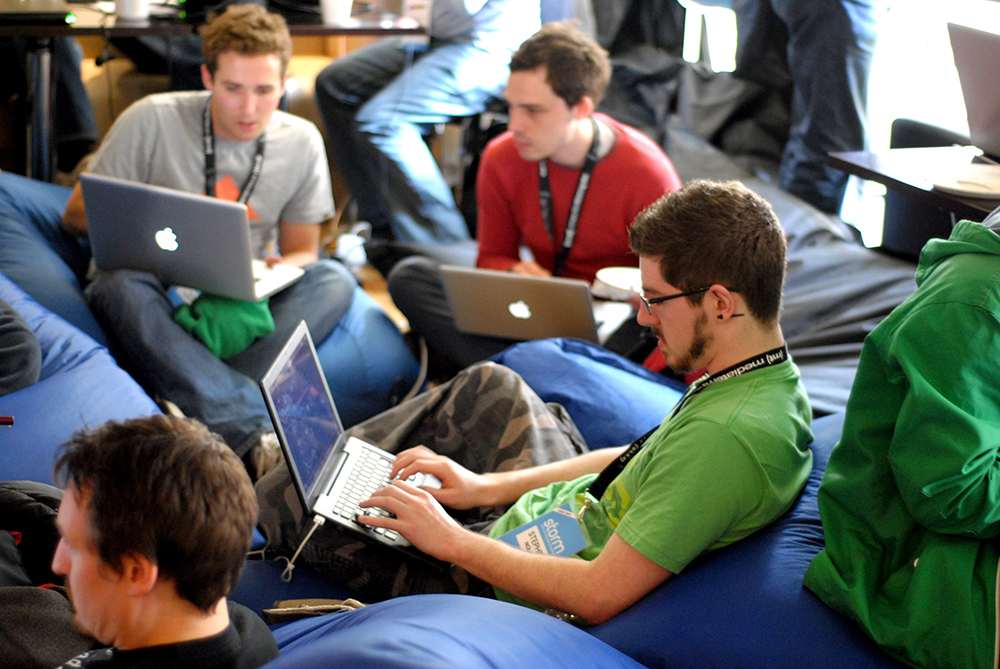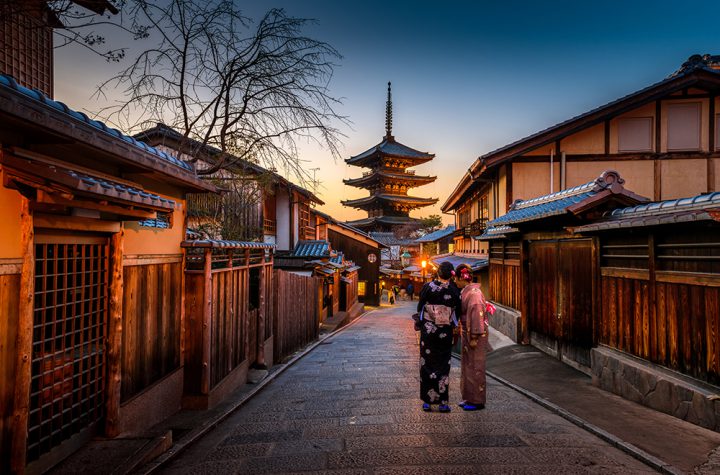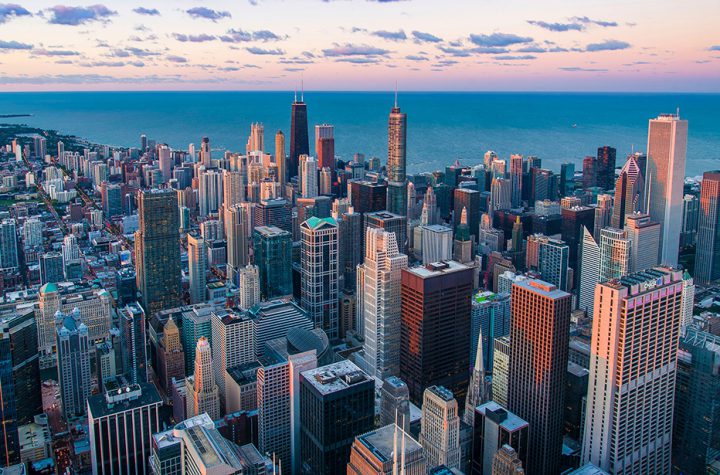
It took Karri Ray a cane, a bottle of water, a folding metal chair and the kindness of strangers to travel the roughly 100 yards from a curb to the polling place in south Philadelphia to cast her ballot on Tuesday evening. Ms Ray, asthmatic and infirm, was also propelled by something else: a seething contempt for President Donald Trump.
“Anything to get his ass out,” her daughter, Toni, explained during one of three pit stops in which an ailing Ms Ray rested on the aforementioned chair as she gasped for breath.
By Wednesday morning, that proposition hung in the balance as the passion and determination of voters in the vital swing state of Pennsylvania had given way to the clerical toil of counting more than 1m mail ballots. It is a task that could take days, election officials have warned, leaving residents in a collective state of agony.
“It’s crazy,” said Anton Moore, the Democratic leader for the 48th ward, summing up the stomach-churning mood.
While nerves were jangling, the contest was playing out much the way many election experts had predicted — and feared: Mr Trump raced out to a big lead among in-person voters, particularly in the rural heartland that lies between Pennsylvania’s urban poles — Philadelphia and Pittsburgh.
We’ll be done as soon as we’re done. We’re going to count the votes and we’re going to end up at the end
Lisa Deeley, Philadelphia election commissioner
As of 3am on Wednesday morning, he enjoyed a margin of about 657,000 votes over his rival Joe Biden out of more than 5m ballots counted up to that point, prompting him to declare victory in a state that is essential to his re-election bid.
But yet to be processed were more than 1m mail ballots from a record 2.5m cast. The bulk of those are from the big cities and urban areas that are expected to tilt heavily toward Mr Biden. Like Ms Ray, they appeared to be limping — slowly but steadily — across the finish line and narrowing the gap.
Under a contested ruling from the Pennsylvania Supreme Court, mail ballots can arrive and be counted up to three days after election day. The scenario that has stirred near-universal dread is that the race is tight enough that those late-arriving ballots come into play and become the subject of legal challenges that could rise to the Supreme Court.
In anticipation of litigation, the state had ordered that those ballots be kept separate — a process that election lawyers likened to stacking kindling for a fire. The first legal matches were struck on Tuesday, with Republican lawyers in suburban Montgomery County, outside Philadelphia, asking a court to invalidate some mail ballots because, they claimed, election workers had processed them too soon, giving voters a chance to correct mistakes like missing signatures.
As Philadelphians awoke to the uncertainty of an election like no other in American history, the focus shifted to a crew of about 100 election workers cloistered inside the cavernous Philadelphia Convention Center and insulated from the president’s tweets. There they conveyed ballots through an assembly line with various stations including sorting, extraction, slicing, unfolding, back-bending and scanning.
Lisa Deeley, the city’s leading election commissioner and a Democrat, turned tautologous as she updated reporters on Wednesday morning on their progress. “We’ll be done as soon as we’re done,” she said. “We’re going to count the votes and we’re going to end up at the end.”
Tom Wolf, the Pennsylvania governor, also pleaded for patience, saying: “The delay that we’re seeing is a sign that the system is working.” He added: “We may not know the results even today, but the most important thing is that we have accurate results, again, even if that takes a little longer than we’re used to.”
Live updates
Follow the latest US election news here.
Philadelphia, the birthplace of American democracy and a city known for its creaky elections machinery, has been under scrutiny like no other place in this campaign since Mr Trump singled it out as a hotbed of election fraud whose ballots should not be trusted. “Bad things happen in Philadelphia,” he said during the presidential debate, unwittingly minting a popular new T-shirt.
A police shooting of a black man with mental health issues, just days before the election, triggered protests and looting, and deepened unease about how election day would play out. Store fronts were boarded up and pundits talked about the risk of leftwing mobs or rightwing “patriots” unleashing violence.
For all the anticipation, polling places generally ran smoothly. That may have been, workers speculated, because so many people had taken the opportunity to vote early and avoid the risk of Covid infection at a crowded polling place.
Jamar Samuel, 27, felt such conviction that he wanted to vote in person, on the day. Or, as he put it, “go straight to the source”. A resident of poor and overwhelmingly black north Philadelphia, he voted for Barack Obama in 2012, but then skipped the 2016 election. “I regret it, but I didn’t vote last time,” Mr Samuel said. It was Mr Trump who brought him back to the polls. “We gotta get him out of office.”
Theresa Upchurch, a poll worker for the 16th ward, said Mr Samuel was typical of what she had seen in the neighbourhood: “The young men weren’t voting [before]. But they’re coming out in droves.” As she spoke, a propeller plane buzzed overhead, trailing a banner urging citizens to vote.
Alexis Dowell rolled up to a polling place near Temple University in a motorised wheelchair with a bumper sticker reading: My Daughter is an Honor Student at Girls High. “I just don’t trust mail ballots,” she said of her decision to vote in person.
Recommended
For all the talk of armed militia members descending on the polls, the atmosphere at Mr Moore’s 48th ward on the south side was festive. A DJ played funk music outside a wedding hall on Snyder Avenue that had been converted to a polling place. Meanwhile, volunteers from rival charities — some from Brooklyn — competed to unload thousands of pizzas and gourmet meals on local voters.
“It’s not going to get violent — unless they try to steal the election,” Mr Moore predicted.
In the courtyard beside the wedding hall, Ms Ray was lumbering toward a school that was her assigned polling place, her daughter and folding chair in tow. She slumped on the steps along a wrought-iron fence, still 20 paces from her destination. She had tried to vote by mail, she explained: “Somehow, some way, it didn’t work out for me.”
“Take your time,” a poll worker counselled. “You’ve got until 8 o’clock.”
Her husband, a security guard, arrived, and there was a family discussion. A short while later, Toni Ray left and then returned in a car with a taped-up mirror that carried her mother the final distance. A young man took her under the arm and helped the elder Ms Ray up the steps. “We’re gonna make sure you get your opportunity to vote,” he promised.
Swamp Notes
In the countdown to the 2020 election, stay on top of the big campaign issues with our newsletter on US power and politics with columnists Rana Foroohar and Edward Luce. Sign up here





More Stories
After a cluster of new COVID-19 cases among the White House staff and a campaign offical, the election night watch party in the White House has become another symbol of U.S. President Donald Trump’s cavalier attitude toward a virus that is ripping across the …
Rob Lucas says the SA economy is forecast to go backwards by 0.75pc in 2020-21, a better outcome than a national economy forecast to shrink 1.5pc.
Labor and crossbench senators want changes to JobMaker, arguing too many workers will be excluded from the hiring credit scheme.